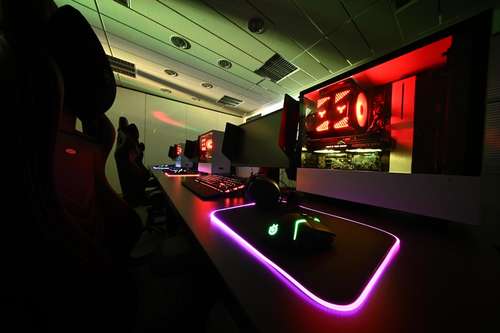In a move that has caught many in the gaming community by surprise, nearly 200 Overwatch developers at Activision Blizzard have voted to unionize. This decision is a notable step in the fight for better workplace conditions, clearer career paths, and fair treatment in the competitive sphere of game development. It’s the kind of groundbreaking shift that makes us wonder what the future holds for other developers within major gaming companies.
The vote signals more than just a desire for change—it’s a symbol of perseverance, a united stand for rights, and a push against established norms within the industry. With concerns ranging from excessive crunch time to inadequate recognition for creative contributions, it seems developers are now more determined than ever to claim their power and seek a more balanced, respectful work environment.
Unionization Movement in Overwatch Development
The recent union vote among Overwatch developers is gaining attention as it marks one of the most significant labor movements within a major studio in recent years. Developers who have long felt stretched thin under the intense schedules are now uniting, much like a well-coordinated team of players strategizing for victory. This is an inspirational move for many who work in a demanding field.
With close to 200 developers standing behind the push to join the Communications Workers of America (CWA), the message is loud and clear: the status quo is no longer acceptable. It’s reminiscent of other pivotal moments in labor history, though this time, the battleground is one of pixels, code, and digital artistry. The vote comes on the heels of increasing public scrutiny around working conditions at predecessors like 2k developers and indie game studios, and it highlights an emerging trend that many in the industry are already discussing.
The unionization presents a chance for Activision Blizzard to redefine its approach to labor and talent management. It’s as if the developers have raised their collective voices, demanding a seat at the table where decisions about crunch schedules and resource allocation are made. Critics sometimes point to trends seen in companies like epic epic games or even traditional heavyweight entities like Activision, but here, the new wave of organized labor is making its mark.
This initiative isn’t just a tick-the-box type of effort—it’s a sign that when passionate professionals band together, they can challenge even the most ingrained practices in the gaming world. And if you’ve ever experienced the frustrations of endless revisions and a work-life imbalance, you know exactly what these developers are fighting against.
Implications for Activision Blizzard and the Gaming Industry
The unionization vote does more than just shake up Activision Blizzard’s internal structure—it sends ripples throughout the broader gaming industry. In an era where labor union sentiments are experiencing a resurgence, particularly in creative and technological fields, this move serves as a rallying cry for transparent, fair treatment for all. When a labor union like CWA gets involved, it’s a call for accountability that may influence decision-making at other leading companies like 2k developers and even epic epic games.
Activision Blizzard, like many industry giants, now faces the challenge of reconciling profit motives with the need for a supportive and sustainable workplace. For many in the community, this could be compared to a teamster navigating a long-haul with both lucrative contracts and the nagging pressure of overwork. The debate has already started about balancing the enthusiasm for blockbuster releases with the need to maintain developers’ physical and mental well-being.
Critics of the unionization effort argue that such changes could lead to complications, pointing to right to work law discussions and concerns about potential operational slowdowns. However, many see it as a natural evolution in how modern corporations need to behave—just as sports teams thrive when their players feel valued and respected, so too do creative teams in game development.
With conversations heating up on platforms like unitetheunion and among labor unions across various sectors, the industry may witness a domino effect, where more developers begin to voice their concerns over working conditions and demands for a better environment. It might even inspire smaller indie game teams to explore similar moves, ensuring that quality work is rewarded in a system that honors every contributor.
The Road Ahead for Labor Unions in Game Development
This union vote is not the end but rather a fresh beginning for labor unions in game development. For those who have kept a close eye on developments at companies like Activision Blizzard, this breakthrough feels like a turning point. The vote is both an acknowledgment of past struggles and a proactive step toward a healthier, more secure future for those in the field.
The decision to unionize comes at a time when the gaming industry is at a crossroads. With high-profile legal and ethical issues sometimes casting shadows over major corporations, developers are now not only experiencing the thrill of creating beloved digital worlds but are also actively championing a workplace culture that recognizes their efforts and respects their limits.
Looking ahead, one of the key issues will be navigating how unionization can coexist with the fast pace of game development. There are concerns about bureaucracy or potential hitches in decision-making processes; however, many believe the benefits far outweigh the risks. When you consider that sustainable change is often tempered with short-term challenges, it becomes clear that what’s happening at Activision Blizzard is part of a broader evolution in employee relations across the tech industry.
It is also a learning moment for managers at other organizations. Instead of viewing unionization as a disruptive force, it can be seen as an opportunity to foster a collaborative environment where efficiency and employee satisfaction go hand in hand. In many ways, it’s like upgrading the entire engine of a high-performance car; small adjustments can lead to remarkable improvements in long-term performance and morale.
Even as the industry digests this news, the broader implications remain significant. With unionization offerings coming in from various quarters, from teamster discussions to debates over right to work law, it’s evident that the gaming community is rallying for changes that will set new standards for fairness and recognition. It’s an exciting time for developers who, after years of silent endurance, finally see a beacon of hope in the form of organized labor.
As we wrap up, this bold move by Overwatch developers at Activision Blizzard reminds us that change is often germinated from persistent calls for dignity and respect. The narrative of game development is evolving, and with unionization, it’s not just about building worlds—it’s about shaping a better, more equitable reality for every coder, artist, and innovator in the gaming industry.
When you reflect on these developments, you might wonder how many more shifts like this are on the horizon. Will other game studios follow suit, amplifying the conversation around labor rights? One thing is for sure: this is a pivotal moment that will be talked about for years to come in the annals of game development history.




